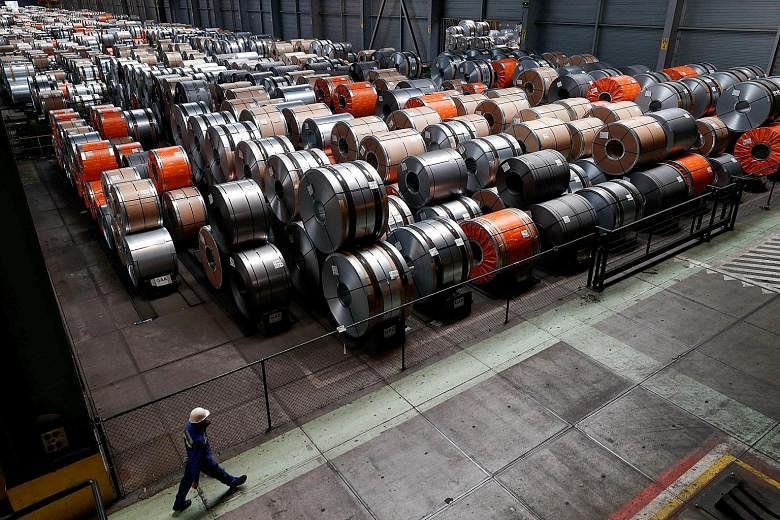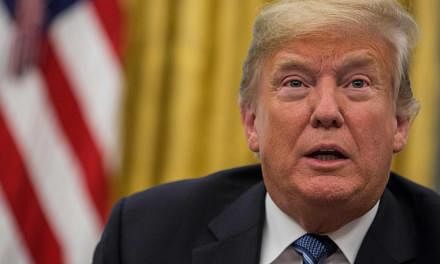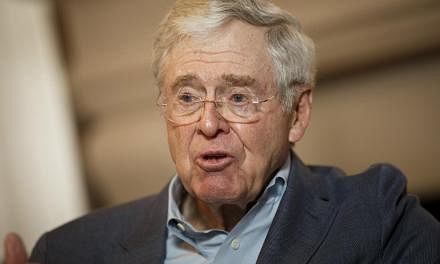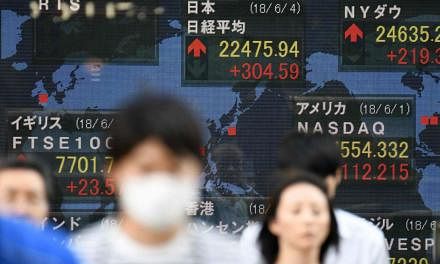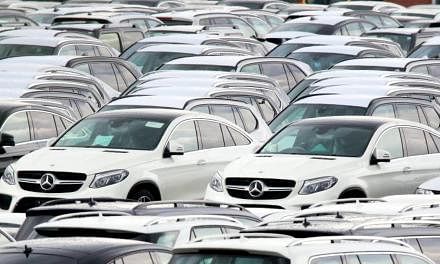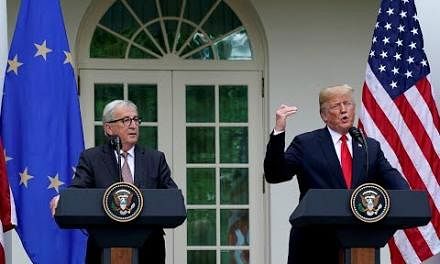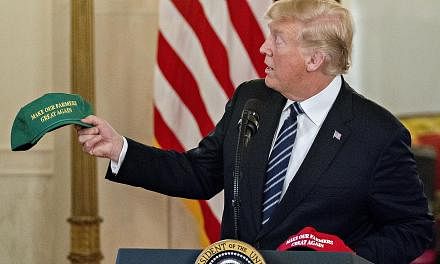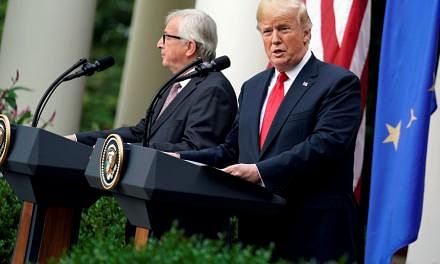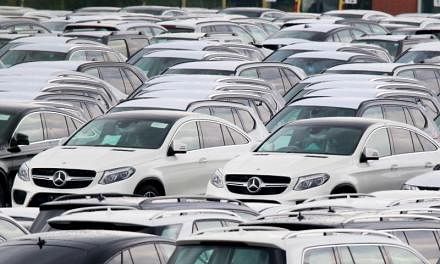FRANKFURT • Higher prices. Disrupted supply chains. Wavering exports. Those are some of the ways that some of Europe's biggest companies have been affected by US President Donald Trump's trade war, offering a preview of how tensions in global commerce could begin to ripple through the European economy.
As companies like BMW, Siemens and Volkswagen reported otherwise solid earnings this week, they warned that Mr Trump's aggressive stance on trade presented them with a host of new risks, which already could be acting as a drag on growth.
The President's tariffs have not just raised the costs of materials such as steel; they also have diverted trade worldwide and warped the complex global supply systems that businesses rely on. In Europe, there are signs of strain which, along with risks ranging from Britain's withdrawal from the European Union to the excessive debt loads of Italy and Greece, are piling pressure on the region's economy.
Beyond the direct effect of Mr Trump's policies, surveys in both the United States and Europe show that businesses are nervous about the fragile detente reached late last month between Mr Trump and a region he had referred to only a few weeks earlier as a "foe".
When managers are afraid, they might cancel or delay investments in new equipment or expansion, hurting companies like Siemens, the German industrial goods giant whose products include technology to operate factories or manage buildings.
Mr Joe Kaeser, the chief executive of Siemens, acknowledged a risk that "all the noise will scare away the confidence of our customers". "Investment is about trust," Mr Kaeser said on Thursday as Siemens reported a fall in quarterly profit that helped cause the firm's shares to slump nearly 5 per cent. It was, he added, about "predictability".
Even though the White House declared a truce with Brussels last week, US tariffs on European steel and aluminium imports remain in effect. The continent is also caught in the crossfire of a worsening trade dispute between the US and China.
European companies could suffer collateral damage in that battle - BMW has already raised prices of SUVs exported to China from its factory in South Carolina. The German carmaker is passing on the added cost from tariffs that China imposed on US products in retaliation for Mr Trump's tariffs on Chinese goods.
If the trade war continues, some companies may begin to move production to avoid paying the levies. BMW hinted as much on Thursday, saying it could sidestep the tariffs by transferring some car production to China.
"BMW can react very quickly to changes in the market because of our flexible network," its chief executive Harald Krüger said in a conference call with reporters. Rival German carmaker Volkswagen, which reported a 7 per cent increase in quarterly profit on Wednesday, also warned that trade tensions could become a drag on sales and profit. "Protectionist tendencies are escalating worldwide," Mr Herbert Diess, Volkswagen's chief executive, told a news conference.
This pessimism is affecting not just major companies, but the European economy broadly. The euro zone economy is slowing down, and evidence is growing that the trade war - or anxiety about a trade war - is one of the reasons.
The currency bloc grew 0.3 per cent in the second quarter of this year, down from 0.4 per cent in the first quarter, Eurostat, the European statistics agency, said on Tuesday. Eurostat has not yet provided any underlying data to explain the loss of momentum.
So far, the direct effects of Mr Trump's steel and aluminium tariffs are limited, Mr Johannes Bahrke, a spokesman for the European Commission, said on Thursday. But Mr Bahrke said in a statement that "trade protectionism is a serious downside risk for the global economic outlook". The tariffs that Mr Trump imposed on European steel and aluminium do not amount to a lot of money, relatively speaking. They hit European exports worth about US$8 billion (S$10.9 billion) annually, a substantial sum to be sure, but not enough to knock the economy off course.
So far, corporate profits have not collapsed, but they are not growing much either. BMW reported a 6 per cent decline in quarterly profit on Thursday, which it attributed mostly to increased spending on new technologies such as autonomous driving. Siemens said that profit from April to June fell 14 per cent, in part because of a slowdown in the US car market.
Gauges of the mood among European businesses, however, show a clear negative trend. A survey published on Thursday by the Ifo Institute, a Munich-based think-tank, showed increasing gloominess among economists who work for European banks, companies, research institutes and government institutions.
US businesses are worried, too. A closely watched barometer of sentiment among US managers dipped to a 12-month low on Thursday.
Concern about tariffs is "an overwhelming concern", the Institute for Supply Management, which conducted the survey, said.
The damage from trade tensions would be much more substantial if Mr Trump broke the ceasefire he reached last month with European Commission President Jean-Claude Juncker .
But given Mr Trump's history of making nice with foreign leaders and then blasting them on Twitter, there is nervousness about how long the truce will last.
NYTIMES
